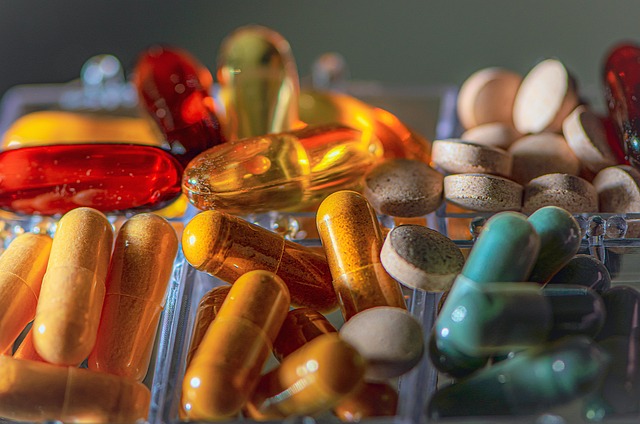Everyday Medications That Might Be Putting Your Kidneys at Risk
Medications can be essential for managing various health conditions, but certain drugs can have negative effects on kidney function. Over time, some medications may cause kidney damage, leading to conditions like chronic kidney disease (CKD). Recognizing the signs and symptoms of kidney problems early can help prevent further damage and improve overall health.

Your kidneys perform the critical task of filtering waste and excess fluids from your blood, maintaining the delicate balance your body needs to function properly. However, certain medications that millions of Americans take regularly can stress or damage these essential organs, sometimes without obvious symptoms until significant harm has occurred.
Nonsteroidal anti-inflammatory drugs, commonly known as NSAIDs, are among the most widely used over-the-counter pain relievers. Medications like ibuprofen and naproxen can reduce blood flow to the kidneys when taken frequently or in high doses, potentially leading to acute kidney injury or chronic kidney disease over time. Prescription painkillers, particularly opioids, also carry kidney-related risks, especially when combined with other medications or used by individuals with existing kidney conditions.
Antibiotics, while lifesaving, can sometimes cause kidney damage. Certain classes, including aminoglycosides and vancomycin, are known to be nephrotoxic, meaning they can directly harm kidney tissue. Proton pump inhibitors, widely prescribed for acid reflux and heartburn, have been associated with increased risk of chronic kidney disease and acute interstitial nephritis when used long-term. Additionally, some blood pressure medications, diuretics, and contrast dyes used in imaging procedures can affect kidney function, particularly in vulnerable populations.
What Are Medications That Can Cause Kidney Disease?
Several medication categories have been identified as potential contributors to kidney damage. NSAIDs top the list due to their widespread availability and frequent use for headaches, arthritis, and general pain relief. These drugs interfere with the hormones that regulate blood flow to the kidneys, reducing their filtering capacity.
Antibiotics such as gentamicin, tobramycin, and certain sulfonamides can cause direct kidney cell damage, especially when used at high doses or for extended periods. Proton pump inhibitors like omeprazole and lansoprazole have been linked to both acute and chronic kidney problems in recent research studies. ACE inhibitors and ARBs, while generally protective for kidneys in many patients, can occasionally cause acute kidney injury, particularly when combined with NSAIDs and diuretics.
Lithium, used for bipolar disorder, and certain chemotherapy agents also pose significant kidney risks. Even some herbal supplements and vitamins, when taken in excessive amounts, can strain kidney function. The key factor is often the duration of use, dosage, and individual risk factors such as age, existing kidney disease, or dehydration.
How to Recognize the Signs and Symptoms of Kidney Disease
Kidney disease often progresses silently, earning it the nickname “silent killer.” Early stages may produce no noticeable symptoms, making awareness of subtle changes crucial. Common warning signs include changes in urination patterns, such as increased frequency, decreased output, foamy urine indicating protein presence, or blood in the urine.
Fatigue and weakness that persists despite adequate rest can signal declining kidney function, as toxins build up in the bloodstream. Swelling in the ankles, feet, hands, or face occurs when kidneys cannot remove excess fluid effectively. Some people experience persistent itching, nausea, loss of appetite, or a metallic taste in their mouth as waste products accumulate.
Shortness of breath may develop if fluid builds up in the lungs, while confusion or difficulty concentrating can result from toxin accumulation affecting brain function. High blood pressure that becomes difficult to control often accompanies kidney disease. If you experience any combination of these symptoms, especially while taking medications known to affect kidneys, consult a healthcare provider promptly.
The Importance of Early Detection in Kidney Health
Early detection of kidney disease dramatically improves outcomes and can slow or even halt disease progression. Kidneys possess remarkable resilience and can often recover function if damage is caught early and the offending medication is discontinued or adjusted. Unfortunately, by the time symptoms become noticeable, significant kidney damage may have already occurred.
Regular screening through simple blood and urine tests can identify kidney problems before symptoms appear. The glomerular filtration rate test measures how well kidneys filter blood, while urine tests can detect protein or blood that should not be present. These tests are particularly important for individuals taking potentially nephrotoxic medications long-term or those with risk factors like diabetes, high blood pressure, or family history of kidney disease.
Early intervention allows healthcare providers to adjust medication regimens, recommend protective measures, and implement treatments that preserve remaining kidney function. For many people, catching kidney disease in its early stages means avoiding dialysis or transplantation entirely through careful management and lifestyle modifications.
Related Programs for Kidney Health Monitoring
Several programs and resources exist to help individuals monitor and protect their kidney health, particularly when taking medications that pose risks. The National Kidney Foundation offers educational materials, screening programs, and support groups throughout the United States. Many hospitals and clinics provide kidney health screening events, often free or low-cost, where individuals can receive basic kidney function tests.
Pharmacy medication therapy management programs help patients understand their medications, identify potential drug interactions, and monitor for side effects including kidney damage. Some health insurance plans cover regular kidney function monitoring for high-risk patients. Medicare beneficiaries with diabetes or high blood pressure may qualify for kidney disease education services that teach self-management strategies.
Digital health platforms and apps now enable people to track symptoms, medications, and test results, making it easier to spot concerning trends and share comprehensive information with healthcare providers. Community health centers often provide sliding-scale services for those without insurance, ensuring access to necessary kidney monitoring regardless of financial circumstances.
Lifestyle Changes to Protect Kidney Health
Protecting your kidneys while taking necessary medications requires a multifaceted approach centered on healthy lifestyle choices. Staying well-hydrated helps kidneys flush out toxins and reduces the concentration of potentially harmful substances, though individuals with certain kidney conditions may need fluid restrictions and should consult their doctor.
Maintaining a balanced diet low in sodium, processed foods, and excessive protein supports kidney function. The DASH diet, originally designed for blood pressure control, also benefits kidney health. Regular physical activity improves circulation, helps control blood pressure and blood sugar, and supports overall kidney function.
Avoiding excessive use of over-the-counter pain relievers is crucial. When pain relief is needed, use the lowest effective dose for the shortest time necessary, and consider alternating with acetaminophen, which is generally safer for kidneys when used as directed. Never combine multiple NSAIDs or exceed recommended doses.
Limit alcohol consumption and avoid smoking, both of which can accelerate kidney damage. Manage underlying conditions like diabetes and high blood pressure meticulously, as uncontrolled chronic diseases are leading causes of kidney failure. Work closely with your healthcare provider to review all medications and supplements regularly, ensuring the benefits outweigh potential kidney risks.
Protecting Your Kidneys While Managing Health Conditions
Balancing necessary medication use with kidney protection requires open communication with healthcare providers. Always inform doctors and pharmacists about all medications, supplements, and over-the-counter drugs you take, as interactions can increase kidney risks. Request regular kidney function monitoring if you take potentially nephrotoxic medications long-term.
Ask about alternative medications with lower kidney risk when appropriate. Sometimes safer options exist that can effectively manage your condition without compromising kidney health. Never stop prescribed medications without medical guidance, as abruptly discontinuing some drugs can cause serious complications.
Be proactive about reporting new symptoms or changes in how you feel. What seems like a minor issue might be an early warning sign of kidney stress. Understanding your personal risk factors, staying informed about the medications you take, and maintaining healthy lifestyle habits form the foundation of effective kidney protection throughout your life.
This article is for informational purposes only and should not be considered medical advice. Please consult a qualified healthcare professional for personalized guidance and treatment.




